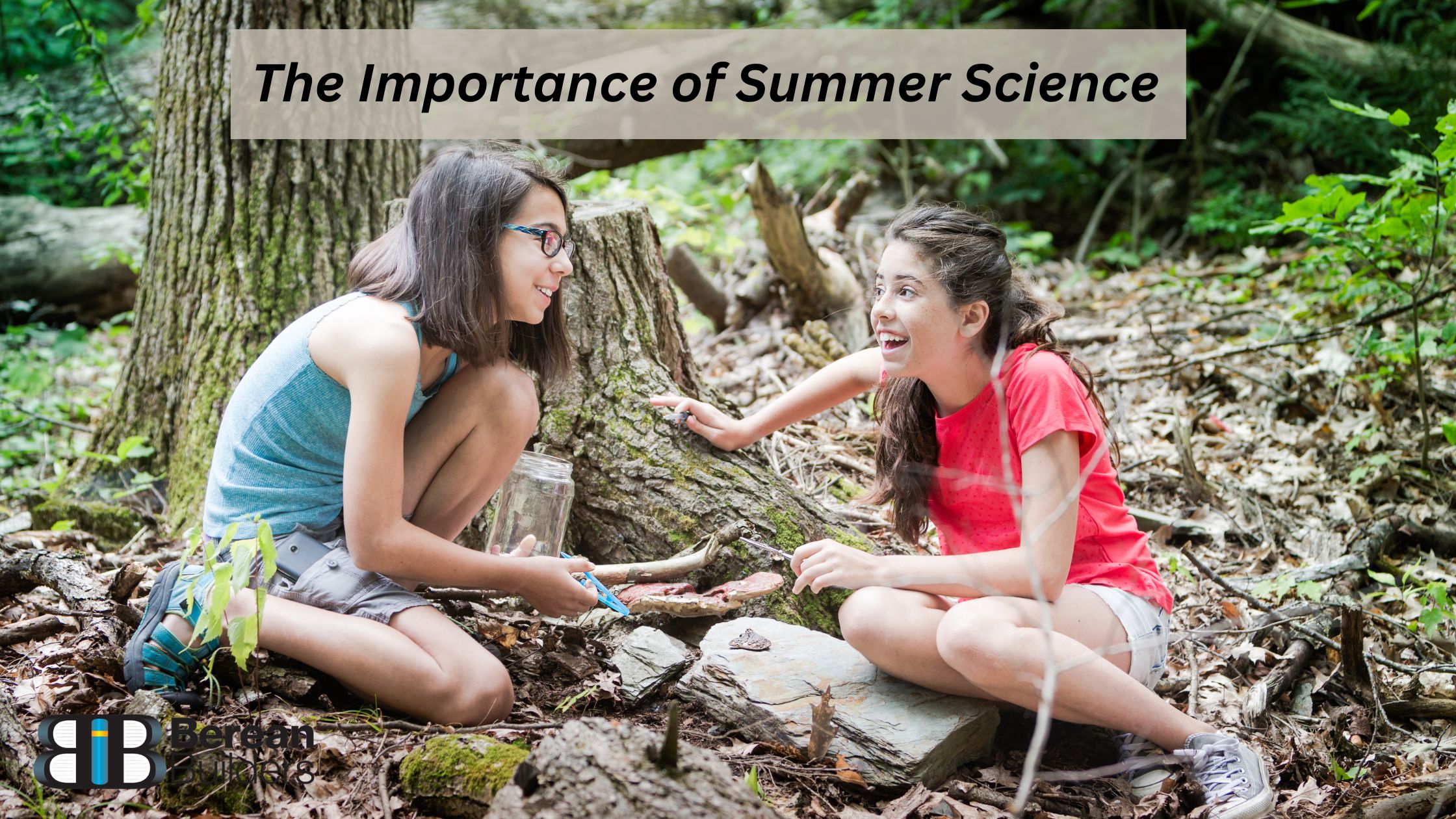
Fall, winter, spring…ahhhh summer. Should your student take a long break from schoolwork or keep learning year-round?
No matter the season, learning never stops.
But some studies have shown that an extended time away from active learning can cause knowledge to wane, especially in math and reading.
To keep these skills sharp, we recommend some fun summer science activities, so your student retains what you’ve taught them and is ready for the next Berean Builders course.
You can find many lists of summer science activities for your students of all ages with a quick online search.
Look for fun projects, natural observations, seasonal crafts, and kitchen chemistry (cooking) that include plenty of reading and math.
Project Based Learning For The Win (PBL FTW!)
Project based learning can be a great summer focus.
- Plant a garden,
- keep a weather record,
- map the moon, stars, and planets each night.
Your student’s interests should lead the list of summer learning. Find what they love, then have a blast incorporating stealth lessons throughout the season.
Why stealth? Because some students balk when it comes to using “vacation” time for learning. Use your best judgement for your particular situation and find the quiet lessons in everyday science.
Most of all, give your student opportunities for critical thinking.
Let them decide what activities will be most effective. Let them do the research and planning.
Once they’re excited about a topic, let it run its course as long as they’re interested. Every moment spent enjoying a project is a moment dedicated to keeping their skills sharp all summer.
Get Out There and Science!
Whether you take a break from lessons or school year-round, summer is a great time to do science experiments in the great outdoors.
Biology, chemistry, physics, and earth science experiments abound, and summer is ideal for observing and interacting with nature and the world around us.
Summer is also a great time to complete any experiments you may have missed during the year.
Berean Builders science courses contain hundreds of hands-on experiments to help students comprehend abstract concepts with concrete actions and observations.
Moderation is the Key
Of course, we know you and your student need time off from teaching and learning to reboot, relax, and refresh. Summer learning doesn’t have to be every day! A couple of activities per week is plenty to make sure math and reading stay at level and learned science concepts stay in your student’s knowledge base.
Your future self will thank you for encouraging your student to practice what they’ve learned so you don’t have to reteach concepts or rehash last year’s lessons.
Make this summer one to remember with plenty of interesting science experiences. Then get ready to start a whole new science adventure in the fall!
